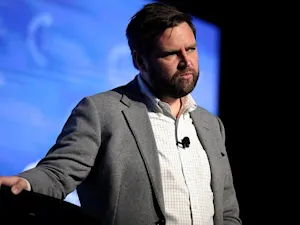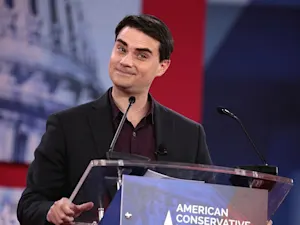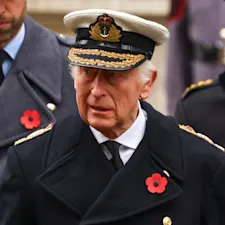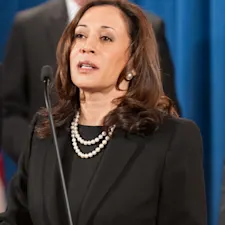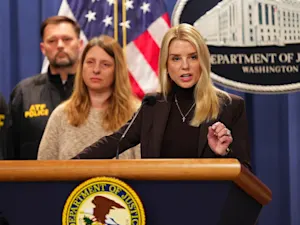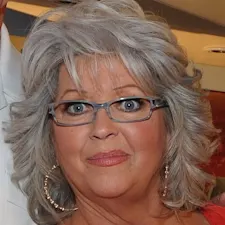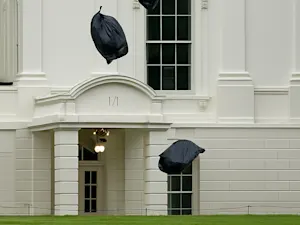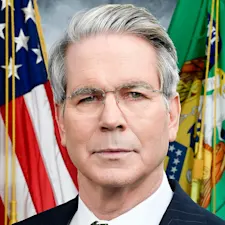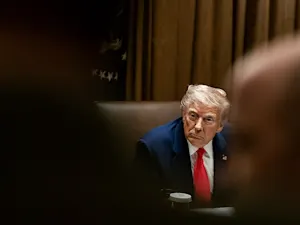
Chris Christie Blasts RFK Jr.: 'A Foolish Man!'
Former Governor Chris Christie, 2015. Photo courtesy of Gage Skidmore under CC BY-SA 2.0.
During a live appearance on ABC News' "This Week" in September 2025, former New Jersey Governor Chris Christie launched a fierce attack on Health and Human Services Secretary Robert F. Kennedy Jr., reportedly calling him "a foolish man" with "vapid ideas" and bluntly labeling him "a joke," according to The Daily Beast. The explosive remarks followed a highly charged Senate hearing where Kennedy faced bipartisan criticism over his leadership at the Centers for Disease Control and Prevention and his department's restrictive COVID-19 vaccine policies. Christie's harsh words went beyond personal insult, reflecting broader concerns about the direction and credibility of public health leadership under the current administration.
Sharp Criticism of Kennedy's Leadership
Christie did not mince words during the panel discussion, reportedly expressing disbelief that Kennedy was appointed to oversee a significant portion of the federal government's health spending. He described Kennedy as the "greatest vaccine and public health denier of the last 20 years," according to Mediaite — accusing President Donald Trump of installing him as a deliberate provocation to critics. Christie's comments captured the frustration of many who view Kennedy's approach as unqualified and conspiratorial, especially amid ongoing public health challenges.
The former governor's remarks came shortly after a Senate hearing where Kennedy was reportedly grilled for hours by senators from both parties. The hearing highlighted Kennedy's controversial decisions, including the removal of top CDC leadership and policies that slowed vaccine distribution and approval processes. Multiple fact-checks by outlets, including the Associated Press, reportedly found that Kennedy made numerous false and misleading claims during his testimony, covering topics from COVID-19 data to broader public health issues, according to Town & Country.
Divisions Within the Republican Party and the Kennedy Family
The debate over Kennedy's role has exposed sharp divisions within the Republican Party and the Kennedy family itself. While Christie and other critics have been vocal in their condemnation, some figures close to the Trump administration have offered a more sympathetic view. Reince Priebus, Trump's former chief of staff, described Kennedy as a "decent, humble, caring guy" who is trying to balance the benefits and risks of COVID-19 vaccines, as reported by The Daily Beast. Priebus's defense sparked a heated exchange with Christie during the ABC panel, highlighting the fractured opinions even among Trump allies.
The Kennedy family feud has also intensified. Several prominent Kennedys, including his sister Kerry Kennedy and nephew Joe Kennedy III, have publicly called for Robert F. Kennedy Jr.'s resignation — citing concerns over his "incompetent" and "misguided" approach to public health and warning that his actions threaten the integrity of critical institutions like the NIH and CDC, potentially endangering lives, as reported by Town & Country.
Concerns Over Public Health Credibility
The controversy surrounding Kennedy's tenure raises serious questions about the future of public health leadership in the United States. Critics worry that his conspiratorial views and vaccine skepticism could erode public trust in health institutions at a time when clear, science-based guidance is essential. The Senate hearing and subsequent public debates have amplified fears that Kennedy's policies may hinder efforts to manage ongoing and future health crises.
Christie speculated that President Trump might fire Kennedy if the backlash continues, suggesting that despite Trump's public praise of Kennedy as "a very good person" with a "different take," the president is aware that Kennedy's leadership is damaging and could be replaced, if necessary, as reported by The Daily Beast.
Maintaining credibility is crucial for public health officials to effectively manage disease outbreaks, vaccination campaigns, and emergencies. The discord within the administration and the Kennedy family feud add to the uncertainty, potentially undermining confidence among Americans who rely on these institutions for guidance.
What This Means for Public Health Policy
Kennedy's controversial leadership and the fierce criticism it has drawn reflect larger tensions in American politics and public health. The appointment of a figure known for vaccine skepticism to a top health post illustrates the polarized environment where political loyalty can sometimes outweigh expertise. Christie's harsh words and the calls for resignation from within Kennedy's own family highlight the challenges of navigating public health policy amid political and personal conflicts.
For the public, the ongoing drama may fuel confusion and skepticism about vaccines and health recommendations. For policymakers, it presents a dilemma: how to balance political considerations with the need for competent, science-driven leadership. The outcome of this conflict will likely influence not only the immediate future of the Department of Health and Human Services but also the broader trust in government health agencies.
Health in a Divided Nation
The saga surrounding Robert F. Kennedy Jr. is more than a personal clash. It reflects the broader struggle over the direction of American public health policy, the role of expertise versus politics, and the challenge of maintaining public trust in a deeply divided nation. Leadership choices at the highest levels ripple through society, affecting not just policy but the health and safety of millions.
The future of public health leadership remains uncertain, but the stakes have never been higher.
References: Chris Christie Unloads on Health Secretary Robert F. Kennedy Jr: 'He's a Joke!' | Kerry Kennedy, Joe Kennedy III Call on RFK Jr. to Resign | Chris Christie Rips RFK Jr. in Fiery Debate on ABC (VIDEO)


